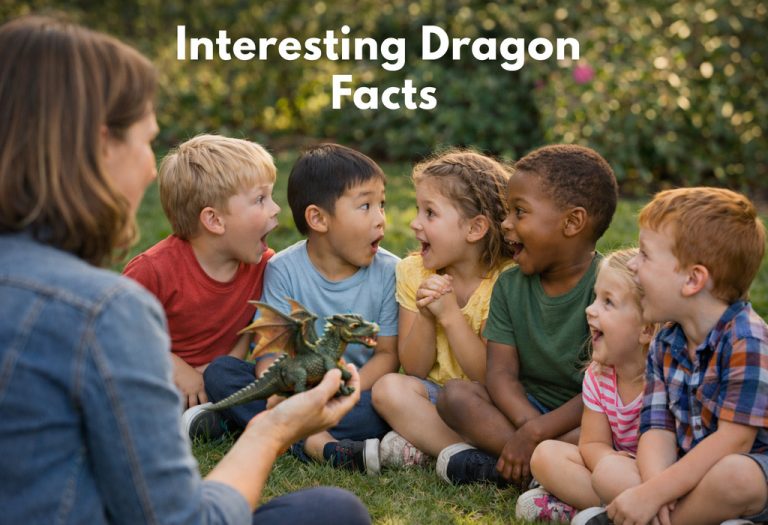Parentification – Is Your Child Parentified?
Ever notice your child worrying about the bills, managing your emotions, or reminding you of appointments like a tiny, overworked life coach? That’s not just being “mature for their age”. If your little one seems to be juggling responsibilities that belong to adults, you might be dealing with something called parentification. This happens when kids take on adult responsibilities, often out of necessity, and end up missing out on the carefree childhood they deserve. Spoiler: kids aren’t supposed to be your emotional support system. So, before you hand them a to-do list and a latte, maybe read the rest of this article, you know, just in case you’re accidentally raising a mini mom.
What Is Parentification?
Psychologists define parentification as a role reversal between a child and a parent. Instead of being cared for, the child takes on responsibilities typically meant for adults, emotionally, physically, or both. This can mean anything from managing household chores and caring for siblings to providing emotional support to a parent who is struggling. While helping out occasionally is normal, parentification goes beyond that; it places ongoing pressure on a child to grow up too fast (1) (2).
What Are the Types of Parentification?
Parentification can show up in different ways, depending on the needs of the family and the role the child is forced to take on. Below are the two main types of parentification that highlight how children can be pushed into adult roles too soon (3).
1. Instrumental Parentification
This type involves the child taking on physical or practical responsibilities within the household. They might cook meals, clean the house, help manage finances, or take care of younger siblings, often filling in for a parent who is absent, overwhelmed, or incapable.
2. Emotional Parentification
Here, the child becomes the emotional support system for a parent or other family members. They may listen to adult problems, mediate conflicts, or feel responsible for keeping everyone emotionally stable. Unlike instrumental roles, this type is harder to spot because it involves invisible labour, carrying the weight of adult emotions and expectations, often in silence (4).
What Are the Causes of Parentification?
Have you ever wondered what might cause a child to take on adult responsibilities at home? Parentification usually happens when something in the family shifts, and the child is left to pick up the pieces. Let’s look at some common situations that can lead to this role reversal (2) (5).
1. Parental Mental Illness
When a parent is struggling with mental health issues like depression or anxiety, they may find it hard to care for their children properly. As a result, the child often steps in to help with daily tasks, care for siblings, or offer emotional support. Over time, this role can become overwhelming and confusing for the child.
2. Alcoholism or Drug Addiction
Parents who use alcohol or drugs may neglect their responsibilities, leaving children to handle things on their own. These kids often cook meals, clean the house, or care for younger siblings. They also try to protect the family secret, which adds more stress to their young shoulders.
3. Parental Absence
Sometimes, a parent is physically or emotionally absent due to divorce, death, prison, or long work hours. When this happens, children may feel the need to “fill in the gap” and take care of the family. This forces them to grow up quickly and take on roles they’re not ready for.
4. Financial Hardship
When a family is struggling with money, children may be expected to help out in big ways, like getting a job, managing bills, or babysitting siblings. While helping out can be good in small ways, too much responsibility can take away from a child’s own growth and happiness.
5. Emotional Support Needs
Some parents turn to their children for comfort, advice, or emotional support, especially if they feel lonely or are going through hard times. This can make the child feel responsible for keeping the parent happy, which isn’t a role they should have to take on.
Signs and Symptoms of Parentification
Parentification isn’t always easy to spot, especially because many children learn to hide the weight they’re carrying. Here are some common signs that may suggest a child is taking on more than they should (1).
- Stress and anxiety
- Headaches
- Aggression
- Poor school performance
- Social struggles
- Difficulty keeping friendships
- Lack of interest in age-appropriate activities
- Ignoring own needs
What Are the Effects of Parentification on Children?
Parentification can leave deep emotional footprints, often affecting how children see themselves and relate to the world around them. Let’s look at some of the dangers of parentification (1) (2) (3) (5) (6).
- Emotional Burden: Children may feel overwhelmed by the emotional weight of adult responsibilities, leading to chronic stress or anxiety.
- Loss of Childhood: They often miss out on typical childhood experiences, such as play, carefree socialisation, and self-discovery.
- Low Self-Esteem: Constant pressure to meet adult expectations can make children feel inadequate or guilty when they fall short.
- Difficulty in Forming Boundaries: These children may struggle to establish healthy personal boundaries later in life, often putting others’ needs ahead of their own.
- Impaired Social Development: Limited peer interaction and increased responsibility can hinder the development of age-appropriate social skills.
- Long-Term Relationship Issues: As adults, they may replicate unhealthy dynamics in relationships, either becoming overly responsible or emotionally distant.
Some Examples of Parentification
Parentification can show up in many different ways, depending on the family and situation. Here are a few examples that highlight how it might look in everyday life (6):
1. Providing Emotional Support to a Parent
A child consistently comforts a parent during emotional breakdowns, listens to their adult problems (e.g., relationship issues, financial stress), and acts as their main source of emotional stability.
2. Caring for Younger Siblings
The child takes on responsibilities like feeding, bathing, helping with homework, or putting younger siblings to bed, often without adult supervision or support.
3. Managing Household Tasks
A child cooks meals, cleans the house, pays bills, or handles other household duties regularly because a parent is unavailable, ill, or neglectful.
4. Mediating Parental Conflicts
The child frequently intervenes in arguments between parents or acts as a go-between, trying to maintain peace or manage communication between them.
5. Supporting a Parent With Addiction or Mental Illness
A child must monitor or care for a parent struggling with substance abuse or mental health issues, sometimes hiding these problems from others or preventing crises.
Treatment of Parentification
As a parent, your support plays a major role in creating a safe, nurturing space where they can grow without pressure. Here’s how you can help them start healing from parentification trauma.
1. Therapy and Counselling
Professional therapy can be a powerful tool in helping children (or even adults who experienced parentification) work through their emotions. A therapist creates a safe space where they can talk about their experiences, process confusing feelings, and begin to understand that the roles they took on weren’t their responsibility.
2. Setting Boundaries
Teaching your child that it’s okay to say no and modelling that behaviour yourself is key to undoing the effects of parentification. Clear emotional and physical boundaries help your child separate their needs from yours and understand that their role in the family is to grow, explore, and feel safe, not to manage adult problems.
3. Reconnecting With the Inner Child
Children who have been parentified often miss out on simple joys like play, creativity, or carefree fun. Encouraging your child to explore hobbies, play with friends, or simply relax can help them reconnect with a more age-appropriate way of being. If your child is older, even activities like art, music, or journalling can offer healing ways to rediscover parts of themselves they had to push aside too early.
FAQs
1. Is helping out at home the same as parentification?
No, pitching in occasionally is normal and healthy. Parentification becomes a concern when the responsibilities are ongoing, too heavy, and interfere with the child’s emotional or developmental needs.
2. How can I rebuild a healthy parent-child relationship after destructive parentification?
Focus on spending quality time together, validating your child’s feelings, reducing their responsibilities, and reinforcing that they are safe and not responsible for adult problems. Professional support can help guide this process.
If you’re a parent reading this, the fact that you’re here means you care, and that’s a powerful start. Sometimes, life throws challenges our way, and without realising it, we lean on our kids more than we should. But it’s never too late to shift the balance.
References/Resources:
1. Cleveland Clinic – What Is Parentification?
3. The Journal for Nurse Practitioners – Parentification: Identifying Young Caregivers at Risk
Also Read:
How to Raise Happy Kids
Tips to Be a Nurturing Parent
Tips to Enhance Your Parenting Skills
Bad Parenting Signs and Its Impact on Children
Was This Article Helpful?
Parenting is a huge responsibility, for you as a caregiver, but also for us as a parenting content platform. We understand that and take our responsibility of creating credible content seriously. FirstCry Parenting articles are written and published only after extensive research using factually sound references to deliver quality content that is accurate, validated by experts, and completely reliable. To understand how we go about creating content that is credible, read our editorial policy here.







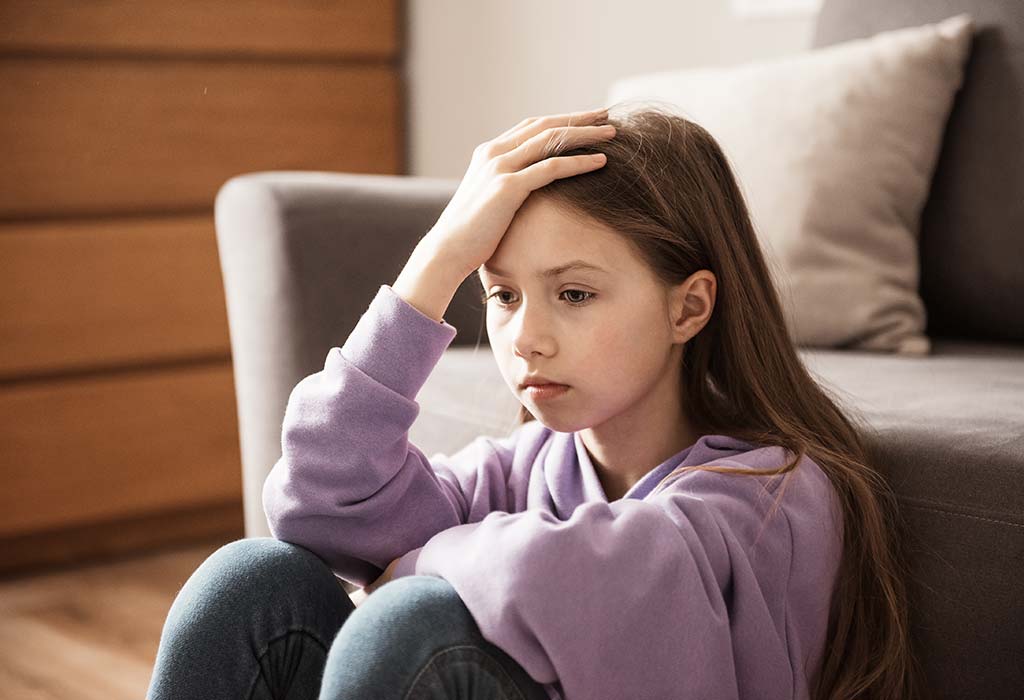

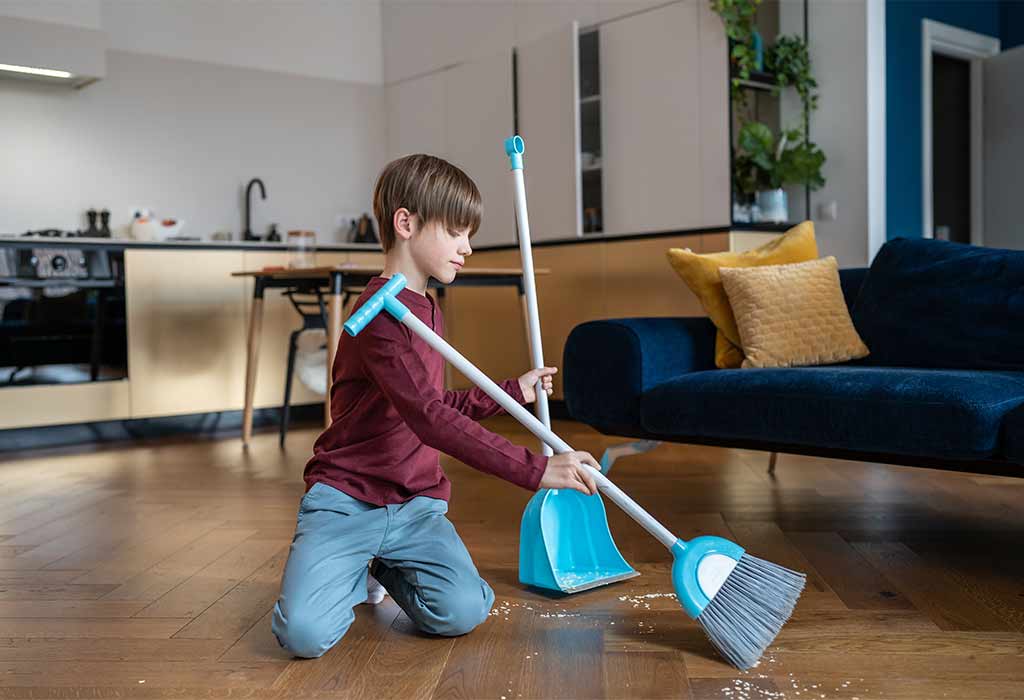


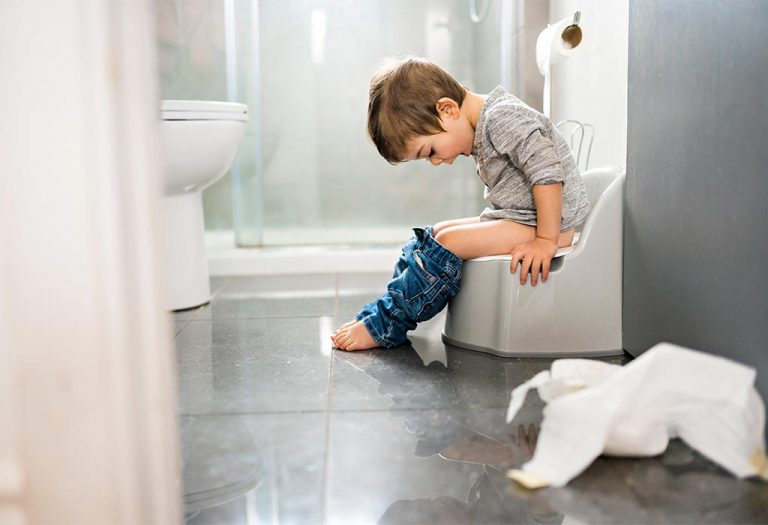

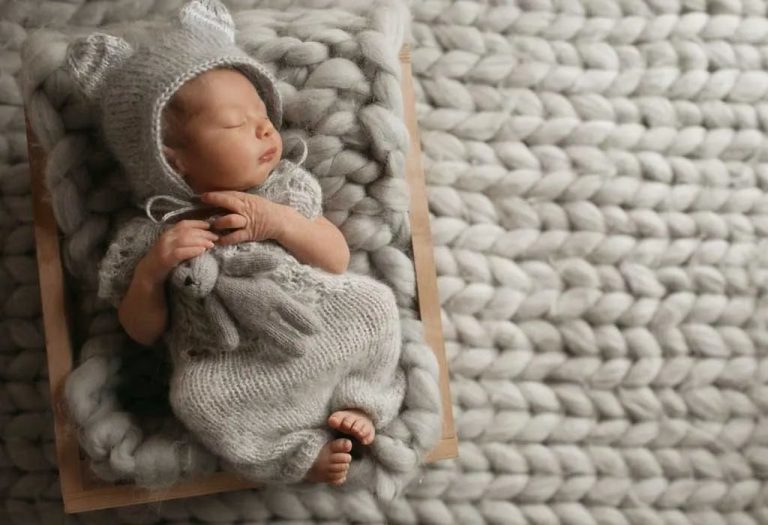



.svg)







